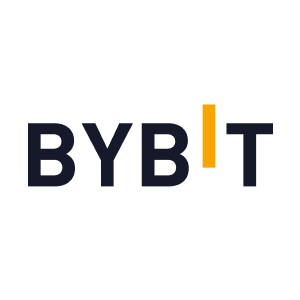Audius AUDIO
Report IssueSentiment Neutral
Fundraising Statistics
 Coinbase Ventures Tier 1
Coinbase Ventures Tier 1 Lightspeed Venture Partners Tier 1
Lightspeed Venture Partners Tier 1 Multicoin Capital Tier 1
Multicoin Capital Tier 1 AUDIOAudius
AUDIOAudius
 USDCUSD Coin
USDCUSD Coin
Short Review Audius
Crypto project Audius (AUDIO) is classified as a NFT. Audius is a Utility token that is hosted on the Ethereum Network. The current total supply is 1.15 B AUDIO (Circulating Supply + Tokens yet to be released - Burned Tokens).
(AUDIO)
AUDIO Price Chart
The launch of AUDIO token trading took place on 23 October 2020.
Fundraising Rounds
Total amount of funds raised by the Audius project is $13.60 M.
| Investment Round | Date | Price | Funds Raised |
| Venture Round | September 2021 | -- | $5.00 M |
| Venture Round | July 2020 | -- | $3.10 M |
| Series A | August 2018 | -- | $5.50 M |
Audius Investors
 Coinbase Ventures Tier 1
Coinbase Ventures Tier 1 Lightspeed Venture Partners Tier 1
Lightspeed Venture Partners Tier 1 Multicoin Capital Tier 1
Multicoin Capital Tier 1 Pantera Capital Tier 2
Pantera Capital Tier 2Audius Cryptocurrency (AUDIO)
It turns out that technologies based on blockchain and cryptocurrency can help open a new page in the evolution of the music industry. Audius is a platform for music artists and music lovers. With easier and more direct communication between artists and fans, transparent pricing and earning models, and the support of world-renowned musicians and companies, Audius is a serious competitor to the traditional music industry. The most important part of the project is the AUDIO token. It has several uses in Audius.
For example, node operators must put up AUDIO as collateral to prove their intent, meaning that if operators act maliciously, they will be penalized with deductions from their bids. The reverse is also true: node operators who diligently offer their services to the network are rewarded in the form of AUDIO in proportion to their bids. Artists can use AUDIO to obtain special tools. They receive tokens for placing their tracks in the top five most popular tracks for the week or for uploading the first song to a newly verified account. Likewise, users can earn rewards for placing in the top five for the week, and developers can earn AUDIO if their Audius API-based apps make it to the monthly top ten apps list. Another important AUDIO feature on the platform is Audius control. Each token is equal to one vote, and the threshold for accepting a proposal is 50% of the votes.
The History of the Audius Project (AUDIO)
Musicians currently receive only a portion of the profits their music generates, with the rest going to a variety of intermediaries such as record labels and streaming platforms music; ownership and licensing are often unclear and complex; payments to artists are not transparent. All of this results in artists only receiving 12% of the money their music makes. To make matters worse, music streaming companies like Spotify refuse to even disclose how much artists get paid per stream. Audius was founded in 2018 by Roneil Ramburg and Forrest Browning to help music artists get the pay they deserve and the freedom to manage their creations. Another goal of Audius is to provide artists with a safe space for their music and make sure that their tracks are not lost, as often happened on some other platforms back in the day.
Advantages of Audius
- Environmentally friendly. Although initially based on Ethereum, Audius has ambitious plans to become carbon negative. The solution they want to choose is to switch to Solana, which is well known for its energy efficiency thanks to its innovative Proof of History algorithm.
- You don't have to be a crypto fan to be a music lover. Audius is a great way to introduce Crypto World to new audiences. Audius allows users to create, collect and display NFT, introducing music lovers to non-fungible tokens.
- Promising partnerships . One of the biggest news in Audius history is its partnership with TikTok. Audius musicians can now easily upload their tracks to the video-sharing app and link their Audius profile to their TikTok account. Music is a huge part of TikTok. It has been proven time and again that any track can go viral there, regardless of whether it was made by famous artists or music lovers.
Disadvantages of Audius
- < b>Democracy or plutocracy. Audius has a governance system similar to many other cryptocurrency projects: token holders have the right to vote on various proposals. In theory, this means that active users receive tokens for participating in the development of Audius and use them to manage the project because they know what is best for it. In practice, however, the more tokens a user stakes, the more significant their vote. It is also possible to purchase AUDIO outside of Audius, so there is no need to be involved in the development of Audius to play a large role in its management. This opens a loophole for big players to manipulate voting and outcompete active users.
- Serious competition. While Audius is a pioneer in the field of blockchain-based music platforms, such projects , like Spotify, Bandcamp, Tidal, Apple Music and SoundCloud, have already attracted the attention of millions of users and thousands of artists, developed approaches, amassed music libraries and partnerships that Audius will have to at least match in order to compete.
- Copyright issue. Due to its decentralized nature, Audius is open to downloading any audio content, including copyrighted music. Although this is a violation of copyright laws, such content cannot be removed. This can work both ways: some artists may rush to Audius to upload their music before someone else does so unofficially, while others may try to start a legal battle.


 ByBit
ByBit  Gate
Gate  Score
Score 